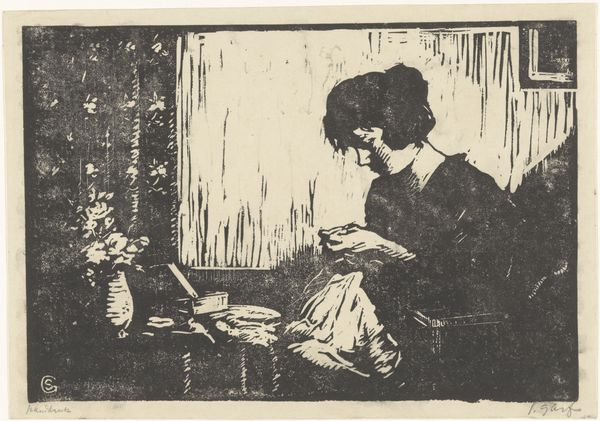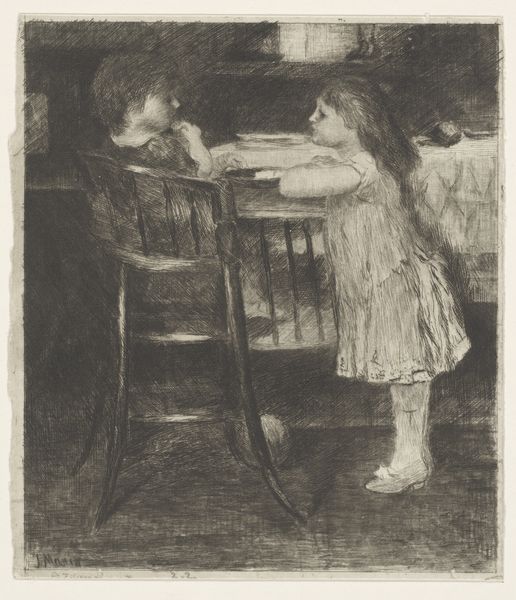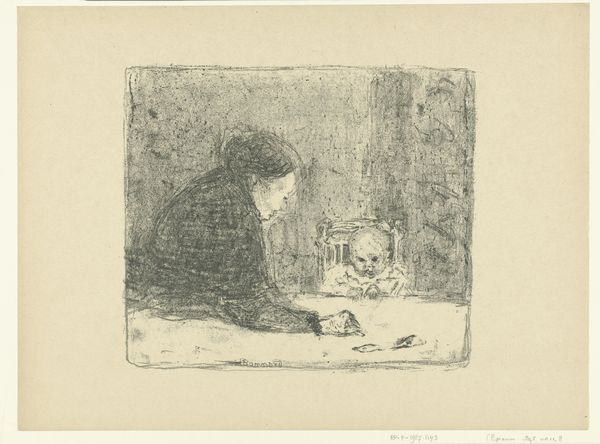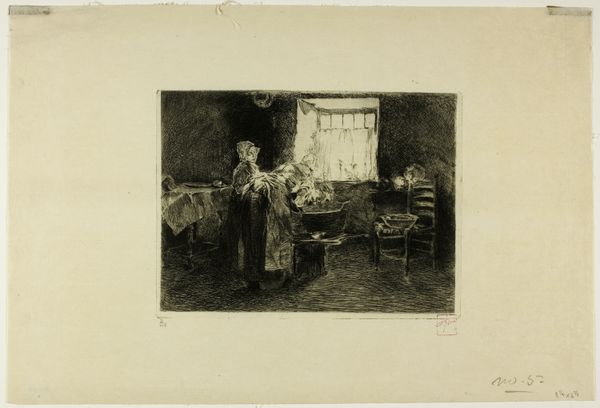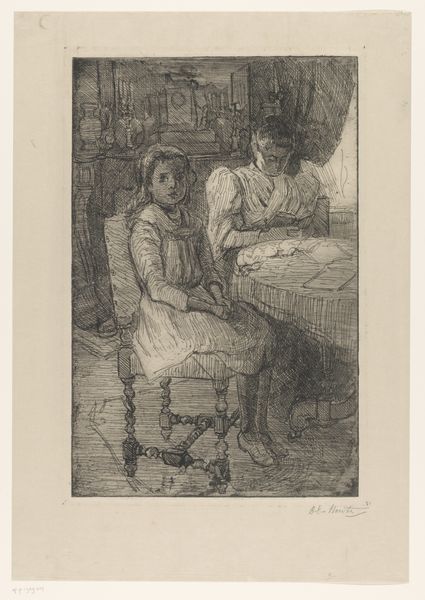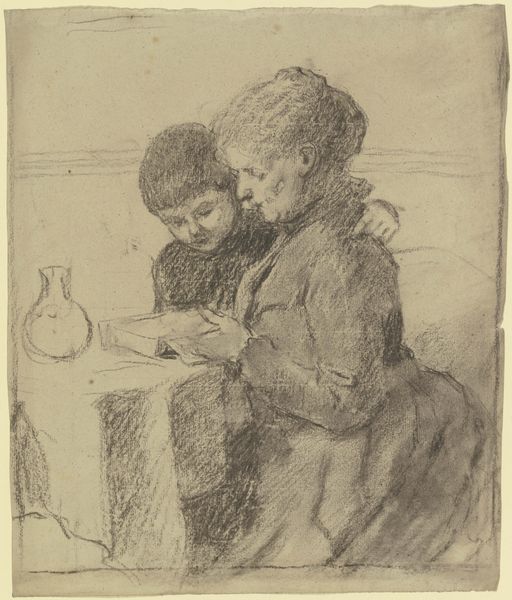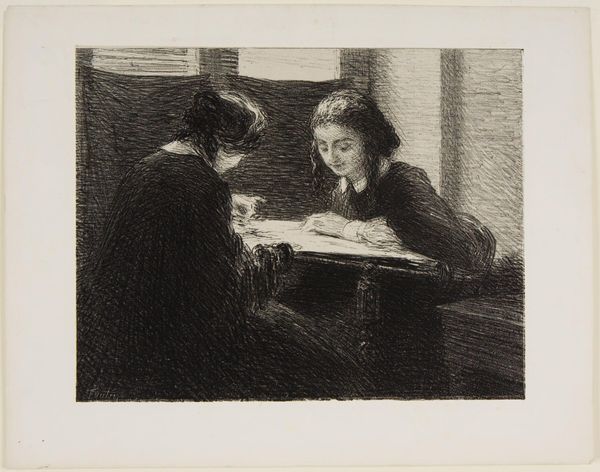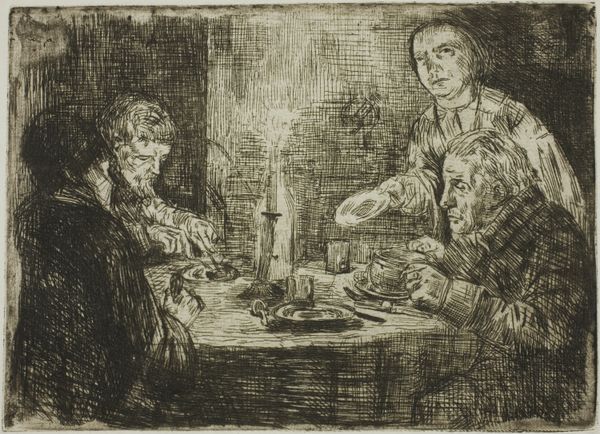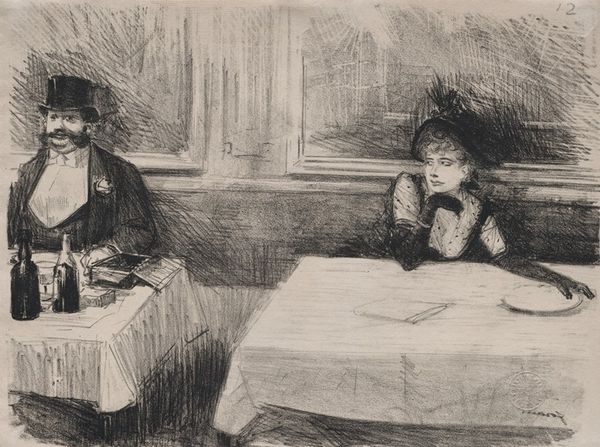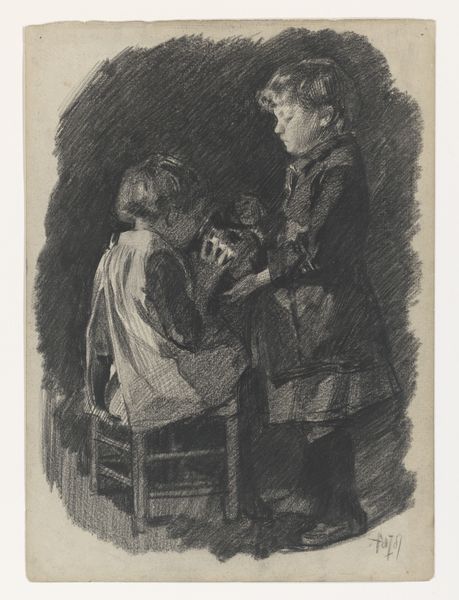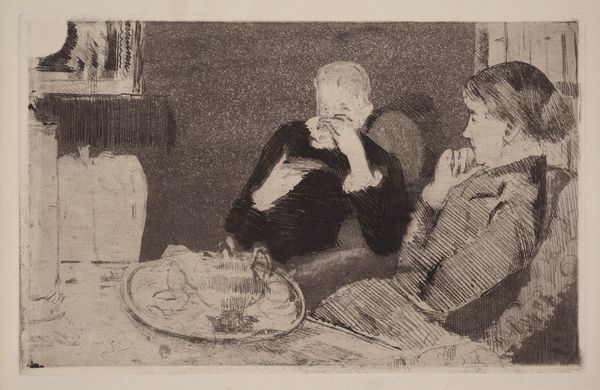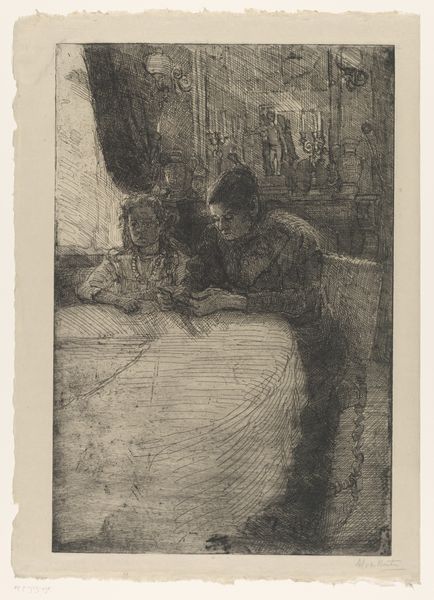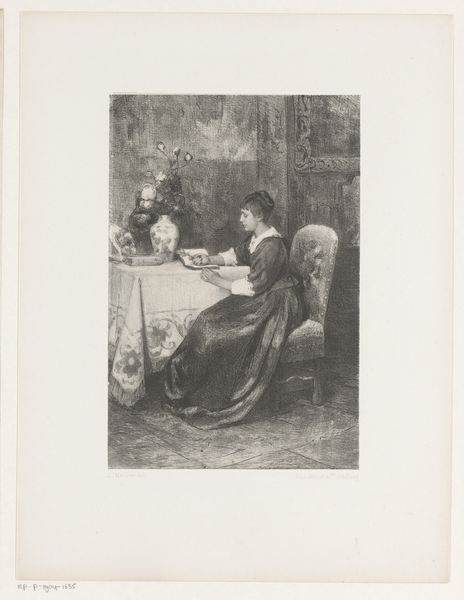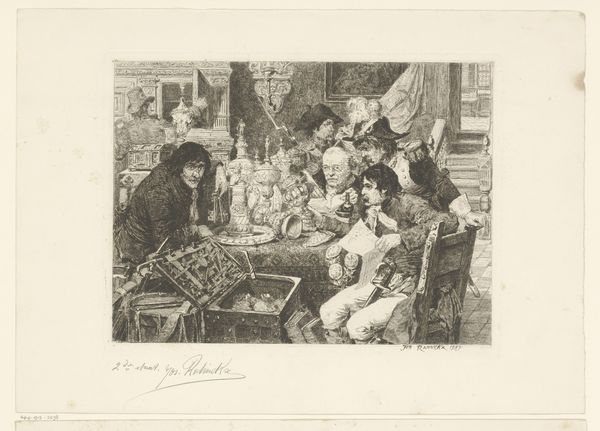
drawing, paper, ink, pencil, charcoal
#
portrait
#
pencil drawn
#
drawing
#
16_19th-century
#
dutch-golden-age
#
charcoal drawing
#
figuration
#
paper
#
ink
#
child
#
pencil drawing
#
pencil
#
19th century
#
genre-painting
#
charcoal
Dimensions: height 175 mm, width 232 mm
Copyright: Rijks Museum: Open Domain
Curator: Welcome to this subtle drawing by Nicolaas van der Waay, likely executed between 1865 and 1936, titled “Kunstbeschouwing,” rendered with pencil, charcoal, and ink on paper. Editor: My first impression is that the subdued tonal range and intricate linework create a deeply intimate mood; the piece draws me into a quiet domestic scene. Curator: Yes, Van der Waay really masters the interplay of light and shadow with such limited materials, doesn't he? Look at how the cross-hatching builds form and defines the subjects, drawing the viewer's eye in and around. The table is particularly noteworthy, demonstrating subtle gradients. Editor: Absolutely, and within that interplay, one can trace a subtle critique of societal expectations placed upon women, perpetually framed in domestic spaces, mediating access to knowledge for the younger generation, this is how gendered divisions are reinforced. Curator: Perhaps. I am far more captured by the formal composition itself. Observe the geometry between the subjects' placement; this construction creates a visually compelling study in pictorial balance. I would not wish to reduce it to a mere study of cultural convention. Editor: It's not mere, though, is it? Van der Waay positions a young woman and a child close together, perhaps connoting a specific relational dynamic that has been forced on women during that era. That the child seems to be a pupil complicates things even further, suggesting not merely the transmission of academic skill, but also perhaps the social and cultural expectations and assumptions that were embedded at that period. Curator: Well, let's appreciate how, regardless of such interpretations, the drawing succeeds through a considered arrangement of formal elements to convey mood. It creates a contemplative atmosphere with limited media. Editor: Agreed. Beyond its intrinsic design elements, "Kunstbeschouwing" offers an intriguing perspective regarding female labour and education. Curator: Indeed, it speaks volumes – literally, it seems! – even with a restrained visual vocabulary. Editor: Precisely! Each line contributes meaningfully to a rich discourse, whether one views the aesthetic framework or cultural context.
Comments
No comments
Be the first to comment and join the conversation on the ultimate creative platform.
